ASEAN-is-coming-together..jpg" />
ASEAN is coming together.
Also Read: Former Bangladesh PM Sheikh Hasina Sentenced to Death
Manila, Philippines, MINA — As the foreign ministers of Southeast Asian Nations meet in Manila, the regional bloc sees the need to strengthen itself as an institution while facing a tough balancing act between the US and China.
The meetings in Manila are expected to demonstrate the difficult position ASEAN countries found themselves in as they try to align their interests with or against those of the Americans and Chinese, whose foreign ministers will also be in Manila for a security forum.
Without engagement with the two economic powers, ASEAN, an amalgamation of democracies, monorchies, and dictatorships, would have difficulty achieving what it wants.
“I would say because I think ASEAN countries realize that they cannot prosper without engaging these great powers outside ASEAN,” Philstar reported, citing Philips Vermonte, an expert of the Jakarta-based Centre for Strategic and International Studies.
Also Read: Pakistan Declares State of War After Car Bomb Incident
For ASEAN to better do this, it should start to change some principles it has followed in the past years and begin to strengthen its institutions, especially its secretariat.
According to Vermonte, ASEAN member countries should contribute more to finance the region’s activities. anila,
He said that each country provides a measly $2 million to the ASEAN Secretariat, making the bloc more susceptible to outside interference.
“This is something that needs to be fixed. If they don’t do that, we will rely on external powers in financing our activities, and that opens the way for great powers to interfere,” Vermonte said at a media forum in a posh hotel in Manila attended by dozens of regional journalists.
Also Read: Jakarta Hosts Gala Dinner for World Peace Forum Delegates
ASEAN to blame?
The bloc, which started as a crop of mostly authoritarian states, also needs a strong leadership, something that it has not recently seen, according to the Indonesian expert.
To address this leadership vacuum, Vermonte proposed the strengthening of ASEAN and its institutions.
Also Read: Indonesian Minister Urges Synergy Between Wasathiyah Islam and Chinese Wisdom
“What we need to have is a strong institutionalization of ASEAN because we can’t rely on certain leaders,” he said.
Michael Vatikiotis, the Asia regional director of the Geneva-based Centre for Humanitarian Dialogue, said the weakness of ASEAN as an institution is what makes handling the “gargantuan” power struggle between the US and China all the more difficult.
ASEAN should come up with a set of guidelines and a code of conduct its member-countries could use as they negotiate with outside countries especially China, he said.
“Why is the code of conduct is being negotiated with China? Why can’t member states negotiate their own code of conduct and tell China that if you want to cooperate with us here’s our code of conduct?” Vatikiotis said, adding that the bloc is partly to blame for the complicated security problem it is now facing.
Also Read: New Delhi Covered in Toxic Smog: Residents Say ‘We Can Hardly Breathe’
He said that a bolstered ASEAN could also help member-countries manage their security problems.
There should also be a review of the ASEAN’s principle of non-interference, which, Vatikiotis said, has been its weakness.
“There is no point in having these mechanisms and institutions for managing tensions and security of member states are too shy about involving themselves in one another’s affairs,” he said.
Another expert advised that the group hasten its community-building to add more political, economic and diplomatic muscle.
Also Read: Boat Carrying 100 Rohingya Migrants Capsizes in Malaysian Waters
“We need to make our community more successful so we have more political weight and more diplomatic weight. We certainly need more economic weight,” said Termsak Chalermpalanupap, a research fellow at the ASEAN Studies Centre of the Institute for Southeast Asian Studies in Singapore.
Termsak said that its policies should not supplant the national policies of the member-states even if ASEAN as an institution was reinforced.
United States or China?
Also Read: Dozens Killed in RSF Drone Strike on Sudanese Village During Funeral
Some ASEAN countries may choose to be pro-US or pro-China, or they may also opt to benefit from a relationship with the two great powers. Others, meanwhile, “may want to be doing a hedging, making money from China but seeking security protection from the US. Some governments may want to be neutral just like Indonesia,” Termsak said.
This is especially the case as the US and China offer ASEAN countries different benefits in their bilateral relationship with Washington and Beijing.
Vermonte, the Jakarta-based expert, said while Southeast Asian countries acknowledge that the US is on an economic decline, it should also recognize that it is still the most powerful country with the largest military.
“On the other hand, China will be the most powerful, (economic) superpower, but in terms of military China is still lagging behind the United States,” he added.
Also Read: International Red Cross Calls for Safe Corridors for Civilians in Sudan
In the end, internal factors, more than external ones, are what will spell the success or failure of the regional group founded half a century ago.
Termsak has one piece of advice for the 10 member-states as they plunge into meetings and forums this week in the Philippines, one of the bloc’s original founding members.
“One important thing that we have to consider is when governments come together at ASEAN, what are our choices? The most obvious choice is to be pro-ASEAN,” he said. (T/RS5/RS1)
Mi’raj Islamic News Agency (MINA)
Also Read: M6.3 Earthquake in Afghanistan Kills 19 People
Also Read: 6.3-Magnitude Earthquake Strikes Northern Afghanistan









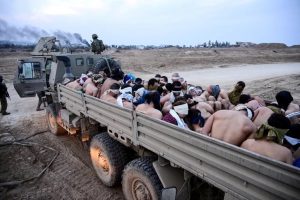
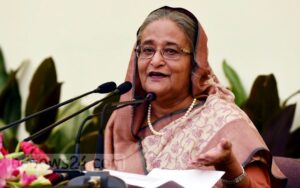



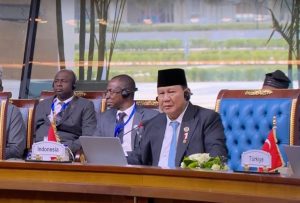
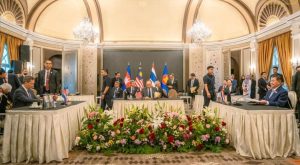
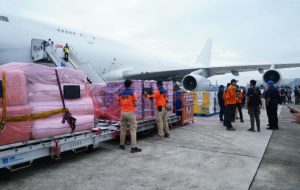
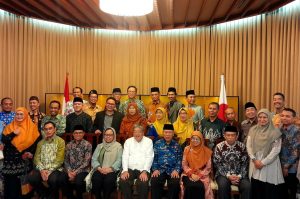
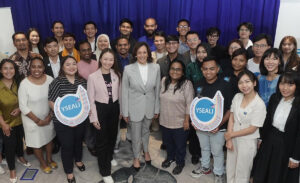
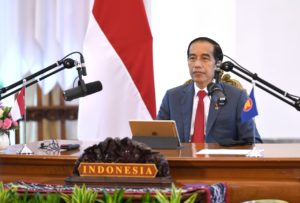









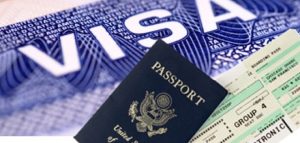



 Mina Indonesia
Mina Indonesia Mina Arabic
Mina Arabic